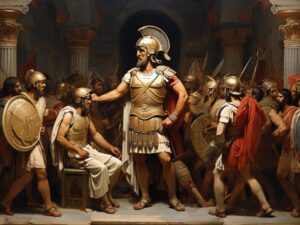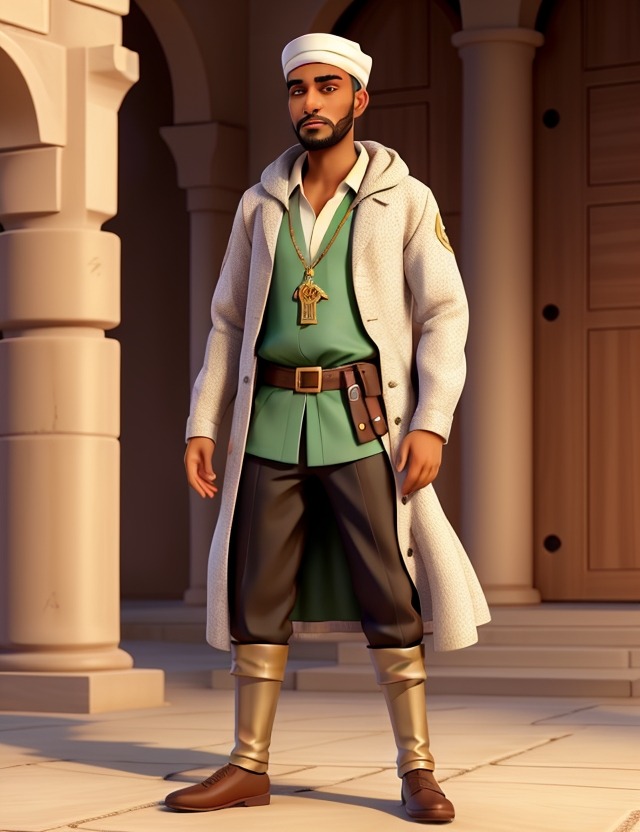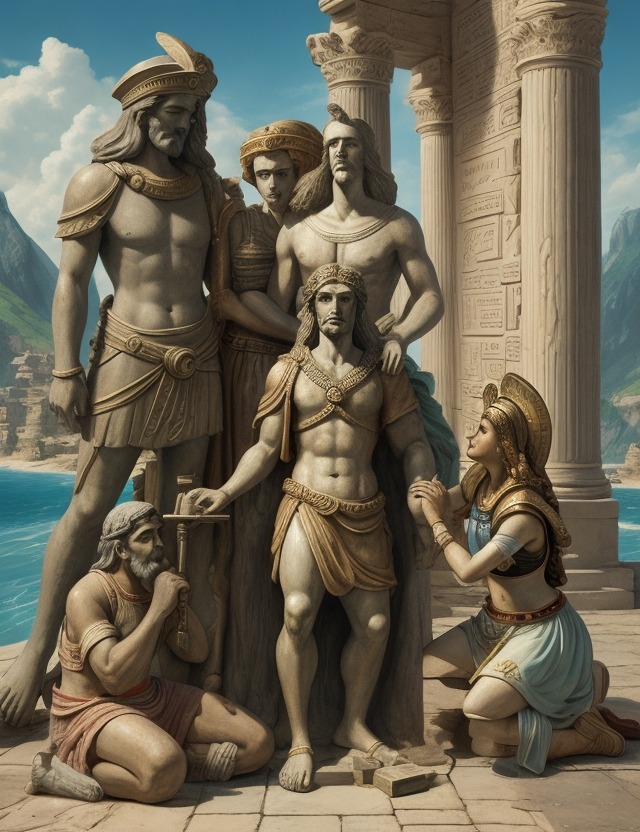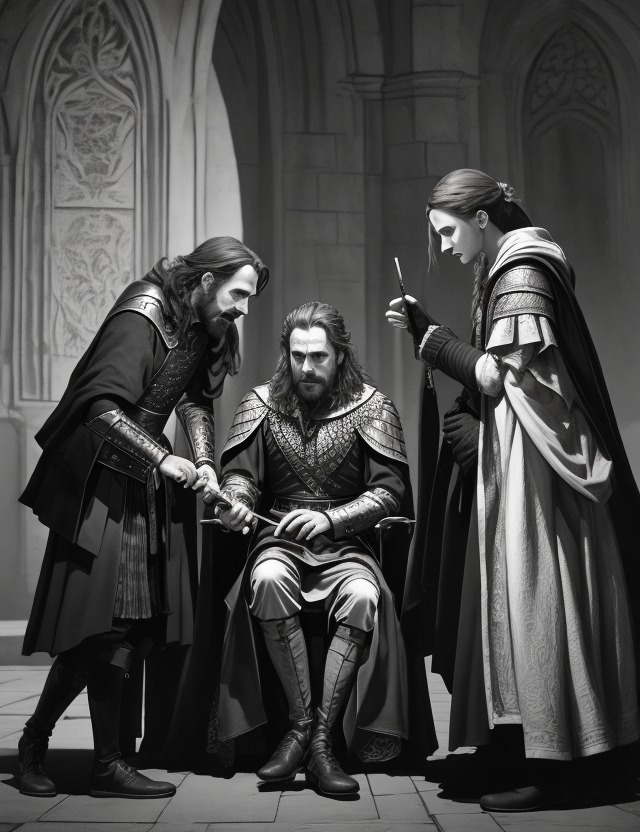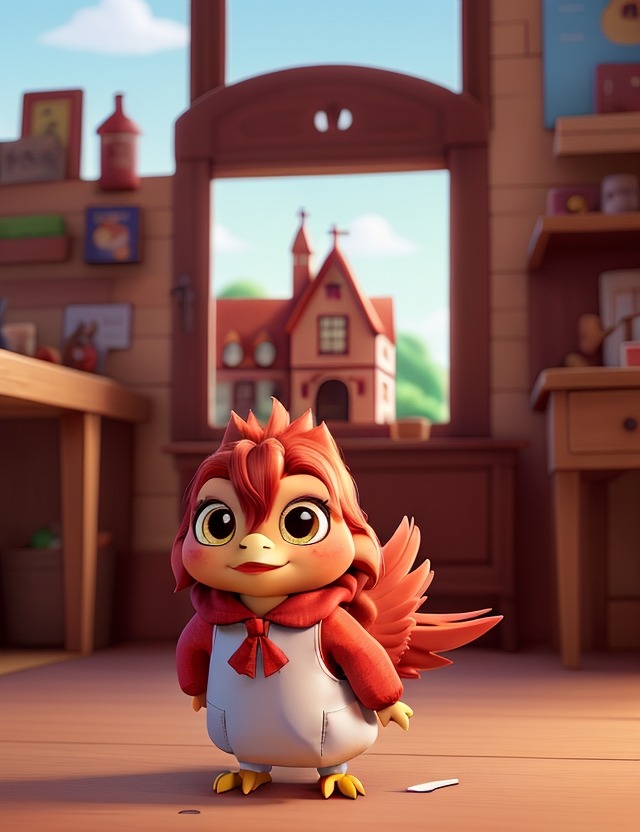Classics, in the context of short stories for kids, refer to timeless tales that have stood the test of time and continue to be loved by children of different generations. These classic stories usually include well-known characters, moral lessons, and memorable settings. Classics are a popular genre of short stories for kids due to several reasons.
Firstly, classics appeal to children’s imagination by presenting them with fantastical worlds, magical creatures, and extraordinary adventures. Stories like “Alice’s Adventures in Wonderland” invite kids to explore imaginative realms and indulge in the possibility of the impossible. These tales stimulate their creativity and allow them to escape into whimsical universes.
Secondly, classics cater to children’s curiosity by incorporating intriguing plots, mysteries, and puzzles. Stories like “The Adventures of Sherlock Holmes” captivate young readers as they follow the protagonist in solving complex cases and uncovering secrets. This genre encourages children to develop critical thinking skills, curiosity, and a sense of observation.
Lastly, classics evoke a range of emotions to which young readers can relate. Whether it’s the heartwarming camaraderie portrayed in “The Wind in the Willows” or the bittersweet journey depicted in “Charlotte’s Web,” these stories enable children to experience various emotions and empathize with the characters. This emotional connection enhances their understanding of the human experience and encourages them to navigate their own emotions.
The main point to convey in the article is that classics are a popular genre of short stories for kids because they stimulate imagination, satisfy curiosity, and evoke emotions. Through these stories, children embark on extraordinary adventures, develop problem-solving abilities, and better understand their own emotional landscapes. Classics hold a timeless appeal that continues to resonate with young readers, fostering a love for reading while imparting valuable life lessons.
Best Classic Stories
Classics Short Stories Genre: Examples
Classic Stories in English with Pictures
The classics encompass a vast range of texts from various genres and time periods, making it challenging to highlight just a few works as the best or most representative examples. However, I have selected three widely acclaimed classics that showcase the diversity, relevance, and appeal of this genre.
1. “Pride and Prejudice” by Jane Austen (1813): This novel is a quintessential example of 19th-century romance and social satire. Set in the English countryside, it follows the story of Elizabeth Bennet, a young woman from a modest family, and her complicated relationship with the wealthy Mr. Darcy. Austen masterfully explores themes of class, marriage, and societal expectations with wit, irony, and keen social observations. “Pride and Prejudice” has become an enduring classic due to its memorable characters, engaging plot, and timeless depiction of love, making it appealing across generations.
2. “Moby-Dick” by Herman Melville (1851): This epic novel is considered a foundational work in American literature, exemplifying the adventure genre while delving into deeper philosophical and symbolic themes. The story follows Ishmael, a young sailor who embarks on a whaling voyage in search of the legendary white whale, Moby Dick. Melville skillfully blends elements of adventure, drama, and introspection, exploring themes such as obsession, human nature, and the struggle between man and nature. “Moby-Dick” showcases the diversity of the classics, effectively merging genres and encompassing a vast array of literary techniques, making it a timeless and thought-provoking masterpiece.
3. “1984” by George Orwell (1949): This dystopian novel has profoundly influenced literature, politics, and popular culture. Set in a totalitarian society controlled by Big Brother, the story follows Winston Smith, a low-ranking member of the ruling Party who rebels against the oppressive regime. Orwell’s chilling portrayal of a surveillance state, thought control, and the manipulation of truth explores themes of power, totalitarianism, and individual freedom. “1984” remains relevant due to its warning against authoritarianism, its exploration of the abuse of power, and its analysis of the ever-pertinent issues of truth and control in society.
These works were chosen to represent the appeal, diversity, and relevance of classics because they address timeless themes, captivate readers with their engaging narratives, and provide profound insights into the human condition. The genre of classics showcases a wide range of styles, themes, and literary techniques, appealing to readers from different generations and holding enduring relevance in our ever-changing world.
Classics Short Stories Genre: Authors
Famous authors in the genre of classics include:
1. Homer: Homer is widely regarded as the author of two ancient Greek epic poems, “The Iliad” and “The Odyssey.” These poems are considered foundational texts in Western literature and have had a substantial influence on subsequent writers. Homer’s works shaped the development of the hero’s journey, the concept of oral tradition, and themes such as honor, glory, and the power of storytelling.
2. William Shakespeare: Although Shakespeare’s works span multiple genres, his contributions to the classics cannot be overlooked. He wrote numerous plays with themes, characters, and narratives inspired by classical literature. Works like “Julius Caesar” and “Antony and Cleopatra” drew heavily from Roman history, while “Troilus and Cressida” echoed Homer’s “The Iliad.” Shakespeare’s adaptations and interpretations of classical works helped popularize ancient stories and characters, making them accessible to a wider audience.
3. Virgil: Virgil, a Roman poet, is best known for his epic poem “The Aeneid.” It recounts the mythical journey of Aeneas, a Trojan hero, and became the national epic of Rome. Virgil’s writing combined elements of both Greek and Roman traditions, incorporating heroism, political propaganda, and the founding myth of Rome’s origins. “The Aeneid” played a significant role in popularizing the ideals and legends of ancient Rome and influenced subsequent writers like Dante and Milton.
4. Sophocles: As one of the three great tragedians of ancient Greece, Sophocles is known for his plays, including “Oedipus Rex” and “Antigone.” His works explore themes of fate, tragic flaws, and moral dilemmas. Sophocles’s innovative use of dramatic structure, nuanced characterization, and profound exploration of human nature shaped the development of tragic drama. His influence can be seen in later playwrights such as Euripides and even in modern works.
5. Jane Austen: Though not typically associated with ancient classics, Jane Austen’s novels, such as “Pride and Prejudice” and “Sense and Sensibility,” contributed to the genre of historical fiction and the development of the English novel. Austen skillfully incorporated classical literature’s wit, social commentary, and themes of morality into her stories set in Regency-era England. Her works demonstrated the enduring appeal of timeless themes and influenced subsequent generations of authors exploring similar themes.
These authors contributed to the development and popularity of the classical genre by creating timeless stories that explored universal themes, reflecting the human experience across time periods. Their works became cultural touchstones, influencing subsequent writers and readers through their use of powerful storytelling, exploration of complex characters, and integration of classical themes and ideals.
Classics Short Stories Genre : History
The classic stories genre is a broad term that encompasses the literary works that have stood the test of time and have influenced the culture and values of different civilizations. The classic stories genre includes various forms and styles, such as epic, tragedy, comedy, satire, romance, and more. The classic stories genre can be traced back to the ancient times, when oral storytelling was the main form of entertainment and education.
Origins of the Classic Stories Genre
The origins of the classic stories genre are not clear, as different cultures have different definitions and traditions of what constitutes a classic story. However, some scholars suggest that the classic stories genre emerged as a distinct category in the 18th century, when writers and critics began to evaluate and canonize the works of the past based on their artistic merit, historical significance, and universal appeal.
One of the pioneers of the classic stories genre was Homer, who wrote the epic poems The Iliad and The Odyssey, which are considered the foundational works of Western literature. Homer’s poems depict the heroic deeds and adventures of the ancient Greeks during the Trojan War and its aftermath. Homer’s poems influenced many writers, such as Virgil, Dante, and Milton.
Another influential figure was Sophocles, who wrote the tragic plays Oedipus Rex, Antigone, and Electra, which are considered the masterpieces of Greek drama. Sophocles’ plays explore the themes of fate, free will, morality, and justice. Sophocles’ plays influenced many writers, such as Shakespeare, Racine, and Freud.
Genres and Forms of the Classic Stories Genre
The classic stories genre is diverse and flexible, as it can accommodate various themes, styles, and techniques. Some of the common genres and forms of the classic stories genre are:
- Epic: These are long narrative poems that tell the stories of heroes, gods, and nations. They often use rhyme, rhythm, and repetition to create memorable tales. Some of the famous epic writers are Homer, Virgil, Dante, and Milton.
- Tragedy: These are plays that depict the downfall of a noble or heroic character due to a flaw, error, or fate. They often evoke pity and fear in the audience. Some of the famous tragedy writers are Sophocles, Euripides, Shakespeare, and Racine.
- Comedy: These are plays that use humor, irony, and satire to mock or criticize the follies and vices of human society. They often have a happy ending. Some of the famous comedy writers are Aristophanes, Plautus, Moliere, and Wilde.
- Satire: These are works that use sarcasm, exaggeration, and ridicule to expose and attack the corruption, hypocrisy, or stupidity of individuals or institutions. They often have a moral or political purpose. Some of the famous satire writers are Juvenal, Swift, Voltaire, and Orwell.
- Romance: These are works that focus on the love and adventure of idealized or heroic characters. They often use fantasy, magic, or supernatural elements to create wonder and excitement. Some of the famous romance writers are Ovid, Chretien de Troyes, Cervantes, and Austen.
Classics Short Stories Genre: Characteristics
The genre of Classics refers to a category of literature that includes works from ancient Greece and Rome, as well as other ancient civilizations. Key characteristics of this genre include an emphasis on timeless themes, exploration of the human condition, and the enduring impact of these literary works on subsequent generations.
Language in classical literature is often poetic and uses rich imagery, metaphors, and rhetorical devices. This adds depth and beauty to the texts while conveying complex ideas and emotions. Plot structures within classics can vary, but they often revolve around heroic quests, tragedies, and moral dilemmas. The characters in classics are often archetypal figures, such as heroes, gods, and mythical creatures, embodying virtues, vices, or powerful emotions.
The setting of classical works can range from realistic to fantastical, incorporating both historical and mythological elements. The tone of these works can be serious, contemplative, or even comedic, depending on the specific work.
Typical themes in classical literature include the nature of fate and destiny, the exercise of power, the consequences of hubris, the pursuit of knowledge and self-discovery, and the exploration of love and its many forms. These themes continue to resonate with readers of all ages as they address fundamental questions about human existence and morality.
Classics are valuable for children as they provide a strong foundation for moral and ethical development. They introduce children to timeless stories, cultural references, and moral dilemmas that can help them understand and navigate their own lives. Additionally, the mythological and fantastical elements in classics often appeal to children’s imagination, sparking their creativity and love for storytelling. Overall, classics hold enduring relevance and continue to captivate readers, young and old.
Classics Short Stories Genre: Benefits
Reading classics offers numerous benefits for kids. Firstly, it enhances their reading comprehension by exposing them to more complex language, sentence structures, and themes. Classic literature often requires readers to analyze and interpret deeper meanings, encouraging higher-level thinking.
In terms of vocabulary development, classics introduce children to a wider range of words. This exposure helps expand their vocabulary and equips them with a more extensive linguistic toolkit. Additionally, as classics often contain advanced vocabulary, children are encouraged to use dictionaries or context clues to understand unfamiliar words, further improving their vocabulary acquisition skills.
Classic literature broadens children’s horizons by transporting them to different time periods and cultures. They gain valuable insights into historical contexts, societal norms, and diverse perspectives. This exposure fosters empathy and a deeper understanding of the world around them, enriching their cultural knowledge and promoting tolerance and acceptance.
Moreover, reading classics sparks creativity in children. These timeless stories often feature vivid descriptions, engaging characters, and imaginative worlds, inspiring young readers to explore their own creative potential. They may be encouraged to write their own stories, create art, or engage in imaginative play related to the themes of the classics they’ve read.
Classics can also be motivational and empowering for kids. Many classic novels feature protagonists who face adversity, overcome challenges, and achieve their goals or dreams. These stories serve as a source of inspiration, showing children that perseverance, determination, and hard work can lead to success. By identifying with the characters’ journeys, children are motivated to pursue their own goals and dreams, empowering them to strive for greatness.
In summary, reading classics enhances children’s reading comprehension, vocabulary, and critical thinking skills through exposure to more complex language and themes. It broadens their horizons, enriches their culture, and fosters creativity by immersing them in different time periods and cultures. Classics motivate and empower children by showcasing characters who overcome obstacles, encouraging young readers to pursue their goals and dreams.
Classics Short Stories Genre: Tips
Reading:
1. Start with the classics: Begin by reading well-known and widely recognized classic novels to get a sense of the genre’s foundations. This will help you understand the language, style, and themes commonly found in classics.
2. Analyze the context: Research the historical and cultural context of the classic novel you are reading. Understanding the time period, societal norms, and author’s background will deepen your comprehension of the text.
3. Take notes: While reading, jot down important themes, character developments, and significant events. This will help you remember key points and facilitate meaningful discussions or analysis later.
4. Discuss with others: Engage in book clubs or join academic forums to exchange ideas about the classic novels you read. Listening to diverse perspectives will expand your understanding and offer new insights.
Writing:
1. Emulate the style: Pay attention to the language, sentence structure, and narrative techniques employed by classic authors. Attempt to incorporate similar elements into your own writing to develop a classic-style narrative.
2. Dive into research: If you are writing historical fiction or a period piece, research extensively about the time and setting of your story. Accurate details will enhance the authenticity of your writing and immerse readers in the chosen era.
3. Develop complex characters: Classic literature often features well-developed, multi-dimensional characters. Spend time crafting believable and relatable characters that undergo personal growth throughout your story.
4. Seek feedback: Share your writing with others, such as critique groups or writing workshops, to receive constructive feedback. This will assist you in identifying areas for improvement and honing your craft.
Teaching:
1. Create a supportive environment: Foster a classroom atmosphere where all students feel comfortable sharing their opinions and interpretations of classic texts. Encourage open discussions and provide positive reinforcement for active participation.
2. Select diverse classics: Choose a wide range of classic novels from different time periods, authors, and genres. This will expose students to various writing styles, perspectives, and themes, enhancing their overall understanding and appreciation of classics.
3. Incorporate multimedia: Make use of audio recordings, film adaptations, or visual aids to enhance students’ engagement with the text. This can help bring the classic story to life and facilitate deeper comprehension.
4. Analyze themes and symbolism: Guide students in analyzing broader themes and intricate symbolism present in classics. Encourage critical thinking and help them uncover the deeper meanings hidden within the texts.
Engaging, challenging, and supporting students:
1. Relate to contemporary themes: Draw parallels between the themes or conflicts explored in classic literature and present-day issues. This will help students connect with the text on a personal level and understand its relevance in their lives.
2. Encourage creative projects: Assign creative projects or assignments that allow students to explore classic literature in different formats. This can include writing a modern adaptation, creating a visual representation, or performing a scene from the novel.
3. Provide differentiated instruction: Recognize that students have varying reading levels and interests. Offer different versions of classics, such as simplified versions or audiobooks, to accommodate different learners.
4. Celebrate achievements: Recognize and celebrate students’ accomplishments in understanding and analyzing classic literature. Praise their efforts and highlight the value of their insights to boost confidence and foster a love for the genre.
Classics Short Stories Genre: Resources
When it comes to the genre of classics, there are several resources, references, and reliable sources available to explore further. Here are a few:
1. Books: Some well-regarded books about classics include:
– “The Greek Myths” by Robert Graves
– “The Odyssey” by Homer
– “Pride and Prejudice” by Jane Austen
– “To Kill a Mockingbird” by Harper Lee
– “1984” by George Orwell
2. Academic Journals and Publications:
– The Classical Journal: A peer-reviewed journal that publishes scholarly articles on a wide range of topics within classics.
– Classical Philology: A leading journal dedicated to the study of ancient Greek and Roman literature, linguistics, and history.
– The Journal of Roman Studies: Focuses on the study of Roman history, archaeology, literature, and art.
– The Classical Review: A publication that reviews the latest books, articles, and research in the field of classics.
Remember, while these resources provide a starting point, the world of classics is vast and diverse. Exploring different periods, authors, and genres will lead to a deeper understanding and appreciation for this literary genre.
